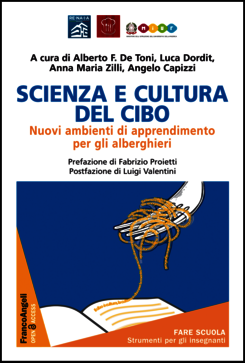If within the peasant society and later the industrial society, the meaning of food remains limited mainly to the sphere of food, in post-industrial society it is increasingly perceived and represented in terms of speech and language. Gastronomy is characterized as a set of history, science, economy, agriculture, deeply intertwined with the culture of hospitality and territorial marketing.
For this reason, the agri-food sector, one of the most driving sectors of our economy, is destined to confirm itself as one of the main strategic resources of the country, provided that it knows how to constantly innovate.
The reflection on the relationship between culture, science and food has affected the entire sphere of education and recently also involved the Italian University, with the start of the first degree courses based on a new vision of food, from Pollenzo, to the universities of Udine and Naples. By placing itself within the current transformation, the volume aims to summarize and enhance the results achieved at the end of the first phase of the project Learning Environments for Hoteliers (AAA). The project intervention has been promoted by the association Re.Na.I.A. (National Network of Hotelier Institutes), in collaboration with MIUR. The intention was to enhance the close connection between the experimentation of innovative learning environments from a methodological-didactic point of view and the guidelines of the recent reorganization of the professional sector.
The book is addressed to the world of hotel vocational education and, more extensively, to those working in school and university education.

